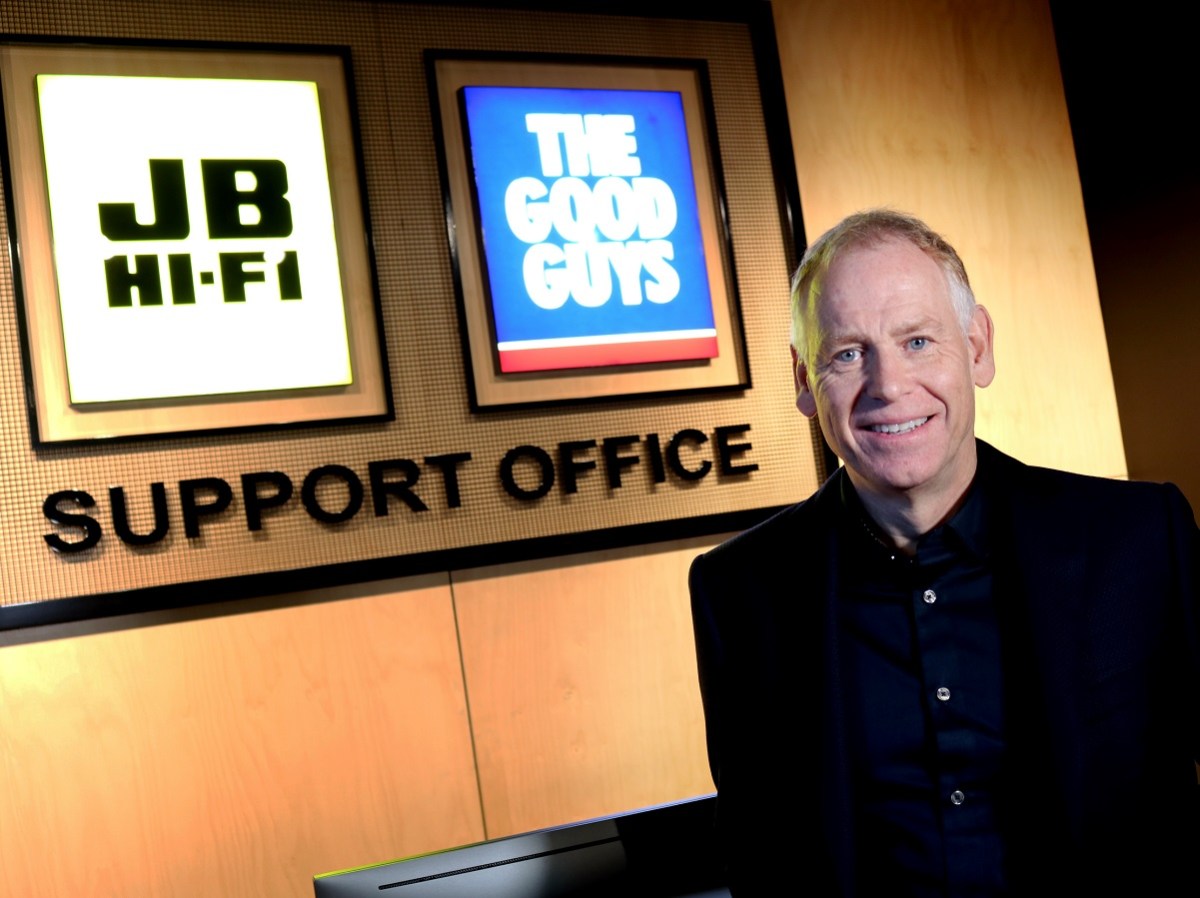Various state lockdowns have slowed year-over-year sales for JB Hi-Fi Australia and The Good Guys in the first six weeks of FY22, which comes as no surprise given more than half of its stores are currently closed compared to only 5% this time last year.
“Store closures certainly have an impact on sales, but they do demonstrate the strength of our business model as consumers seamlessly switch to our online platforms. However, when our stores re-open, our customers do come back,” incoming JB Hi-Fi group CEO, Terry Smart said.
For the period between 1 July and 15 August 2021, total sales at JB Hi-Fi Australia were down 14.6% compared to FY21 but up 19.1% on FY20, and over at The Good Guys, total sales declined 8.1% compared to FY21 but increased 28.9% compared to FY20.
“There is some impact – particularly in New South Wales and Victoria – on high involvement purchases with a higher ASP such as cooking appliances that tend to get delayed, but when stores re-open, you tend to pick a lot of those purchases back up again.”
Western Australia was named the strongest performing state for the group, followed by Queensland and South Australia, ahead of the states that are more impacted by Covid-19 restrictions, but Smart said the business is “doing a good job of capturing those sales online when the stores are closed, although you do miss a little bit”.
Pleasingly, the group’s Net Promoter Score (NPS) has skyrocketed in NSW, where Smart expected delivery systems to be challenged. “Customers have been happy with what we have delivered during this time and how we are delivering it.
“The big question is, what products you lose that aren’t generally transacted online, such as premium appliances and services like telco connections. We still need to get a clear understanding around if the purchases are just delayed and if so, how much of it comes back when the stores re-open.”
With online sales up 93% for JB Hi-Fi Australia and 48.5% for The Good Guys during FY21, now accounting for 13.1% and 9.5% of total sales respectively, Covid-19 has stress-tested online systems and processes.
“We have done a lot of learning throughout the period, and we now have a deeper understanding of the online channel with every part of the system being as streamlined as possible,” Smart said.
“In saying that, we have always been agnostic to whether a customer trades in store or online because the latter is profitable for us with relatively small basket sizes and items that are easy to pick and pack.
“We will continue to test and improve our online fulfilment channels; we are doing things in the background in terms of testing super hub stores where we consolidate volume into stores for fulfilment and back of house processes.”
When asked about the online versus in-store sales mix, Smart said the states which have only had short lockdowns have reverted to more pre-Covid online activity, but in Victoria where there has been extended lockdowns, the online percentage has settled more compared to other states.
“It’s too early to say whether we will see a similar sematic in NSW, but we are planning for it.
“The pandemic has demonstrated that people will shift online, but as soon as we re-open our stores, customers flood back in. We have always been about providing a great experience in-store and online, so we let the customer make up their mind.
“Covid has allowed us to gain a deep understanding of the online channel so we can maximise it, but customers are voting with their feet and coming into stores when they can. We sell products that they want to see and compare, and they want to talk to our staff, even though they have researched heavily online.
“They want confirmation from a salesperson that they are making the right decision. There’s no doubt that online penetration will continue but this has proven that people still love the physical environment as well.”

